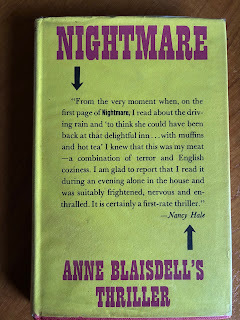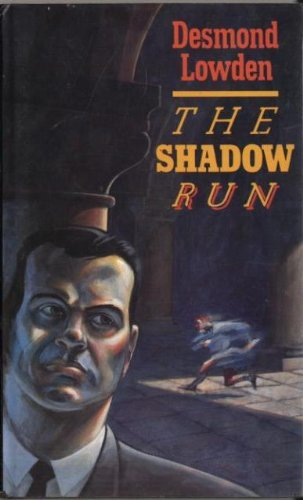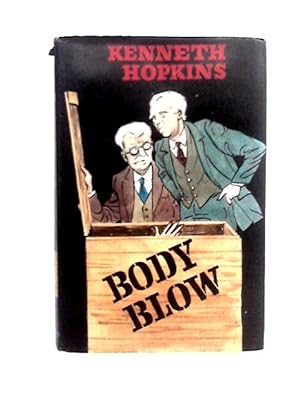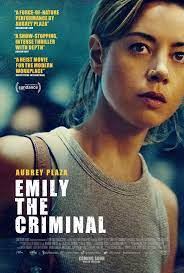Martin Edwards's Blog, page 4
August 9, 2025
Miss Winter in the Library with a Knife - the first review

It's an exciting time as I look forward to my puzzle mystery Miss Winter in the Library with a Knife coming out in hardback on 11 September in the UK and appearing a few weeks later in the US. I very much enjoyed my experience recording some of the audiobook and here are one or two photos taken in the studio by the lovely Head of Zeus publicity team.

I'm also excited about the UK launch at Serenity Books in Romiley. If you happen to be in the vicinity of north Cheshire, south Manchester, on the evening of 11 September, do come along. Details here: https://www.ticketsource.co.uk/sereni...
Nowadays it's becoming commoner for reviews to appear before actual publication. Goodreads, for instance, features early reviews, but in the case of this book, the reviews that have appeared so far have been of an early, advance version of the book (or, in most cases, just a part of it). So it was with some holding of breath that I awaited the first magazine review of the final version...
And a US publication, First Clue, which I gather is run by librarians, has come up with that first review, and I'm very pleased with it: 'In a clever standalone homage to Agatha Christie and other Golden Age authors, Edwards (Rachel Savernake series) invites “external observers” (i.e., readers) and “analysts” (reviewers) to participate in an interactive puzzle mystery-within-a-mystery set in a remote, snowbound Yorkshire village. The mysterious Midwinter Trust has brought six down-on-their-luck people with connections to crime fiction (including washed-out author Harry Crystal and laid-off book publicist Poppy de Lisle) to Midwinter village in the rugged Pennines to solve a fictional murder over the Christmas holidays under the close supervision of six Midwinter Trust employees. But the game soon goes awry...a fun, diverting read.'
August 8, 2025
Forgotten Book - Nightmare

Nightmare is a novel by Anne Blaisdell, but the author - who went on to enjoy a highly prolific career - is better known as Dell Shannon (not to be confused with the American pop singer) and as Lesley Egan, and her real name was Elizabeth Linington. Linington (1921-88) was a pioneering female exponent of the police procedural, but this book, which is one of her earliest, and dates from 1961, is very different. I gather that it was later published under the name Lesley Egan, as - apparently - were some later books which appeared in the UK under the Blaisdell name; her bibliography seems quite complicated.
Nightmare was published in the UK by Victor Gollancz, and the jacket was dominated by a wordy encomium from Nancy Hale, of whom I must admit I'd never heard - it turns out that she was a highly regarded short story writer of the time. The story is set in Wales and concerns an attractive young American woman, Pat Carroll, who decides to splurge her inheritance on a trip to Britain. She plans to meet the mother of her dead fiance, Stephen, but before doing so she bumps into a writer called Alan Glentower, who takes a shine to her.
She agrees to meet Glentower again, but her visit to Mrs Trefoile does not go well. The old lady (not that old - just about sixty!) turns out to be a religious fanatic who decides to imprison Pat so as to preserve her purity and who is assisted in this task by two servants whom she has been blackmailing for years. I didn't find the premise especially convincing, but the author does handle it effectively, ratcheting up the tension chapter after chapter. As a dark novel of suspense, it works pretty well. And the Welsh setting is captured competently; I only noticed one tiny bit of dialogue that struck me as pure American. On this evidence, Linington was certainly a very capable storyteller.
Nightmare was filmed in 1965 as Fanatic, which has the less than subtle alternative title of Die! Die! My Darling and benefited from a script by Richard Matheson as well as from an eclectic cast including Tallulah Bankhead, Donald Sutherland, Stefanie Powers, Peter Vaughan - and Yootha Joyce. And the 2010 Broadway play Looped is, I gather, based on Bankhead's performance in the film.
August 6, 2025
Phil Lecomber - guest blog post

I've met Phil Lecomber, with whom I share an agent, a number of times over the past year or so. I enjoy his company, and asked him to talk about the background to his books. Here's his guest post:
'For inspiration for myGolden Age crime series, Piccadilly Noir, I turned to a collection ofbooks with a distinctly local provenance. After all, unlike the American milieuof Raymond Chandler, my protagonist, George Harley, inhabits a peculiarlyBritish world – one of grubby bedsits, all-night cafés, and Gold Flakecigarettes.
To establish the baseflavour, I began with some classic London aromatics. Dickens, of course – particularlyin his Sketches by Boz phase; Thomas Burke, whose problematic racialstereotypes might now obscure his otherwise fascinating depictions of the city;and that great biographer of London, Peter Ackroyd.
To bring out the interwarperiod flavour, I turned to Patrick Hamilton, whose novels – with theirpetrichor of disappointment and cast of troubled lodgers – provided a richstock for my world-building. I added further depth with some more obscure works,including Storm Jameson’s Here Comes a Candle, Philip Allingham’s Cheapjack,and Hippo Neville’s glorious Sneak-Thief on the Road.
Now to the meat of thestew: the works of the great Gerald Kersh – chiefly Night and the City,but also Fowler’s End, Prelude to a Certain Midnight, and TheAngel and the Cuckoo. Now sadly mostly forgotten, Kersh was once amongBritain’s highest-paid writers, living a life as colourful as his characters. Ablend of Night and the City and Graham Greene’s Brighton Rock wasexactly the flavour I was aiming for when I first began creating Harley’sworld.
For a little extra spice,I turned to a handful of gritty 1930s novels, including James Curtis’s TheGilt Kid; Robert Westerby’s Wide Boys Never Work; and GriersonDickson’s Soho Racket. And so, I believed, I had arrived at the perfectrecipe for a hard-boiled British noir series.'
August 4, 2025
Recording Miss Winter in the Library with a Knife

If you've read The Life of Crime, you'll know that the lives of crime writers are full of ups and downs, but it's fair to say that, in my experience, the ups far outweigh the downs. You simply never know what is around the corner. For instance, I had a brand new experience just last Tuesday. I recorded part of my own audiobook...
Some time ago, my editor Bethan suggested that I might like to record some parts of Miss Winter in the Library with a Knife for the audiobook version. Given that we'd already agreed on two excellent actors, Mark Elstob and Candida Gubbins, to do the recording, this took me aback. But Bethan thought that it would be fun - and this is a book that's definitely meant to be fun - if I were to read certain parts of it, including the 'Rules of the Game' at the beginning, and the Cluefinder.
Given her confidence in me, I thought I should give it a go and so I travelled down to London to the Chatterbox studio in Camden Town, where Chris Ahjem, who has produced over 200 audiobooks, was in the studio. It's never possible to judge one's own work, especially in an unfamiliar context, but I did enjoy the whole experience, and it was nice to meet Zoe, from Head of Zeus publicity, who came along to take photos and videos as part of the publicity push surrounding the book.
Publication is drawing nearer. The book finally sees the light of day on September 11 and there will be a launch at Serenity Books in Romiley, near Stockport. If you're interested in coming along, please get in touch for detais.
August 1, 2025
Forgotten Book - Shadow Run

Desmond Lowden is a writer who interests me more as I find out more about the man and his work. He was far from prolific, publishing just eight novels between 1969 and 1990, as well as several screenplays. He achieved considerable success, and today's Forgotten Book, published in 1989, won the CWA Silver Dagger (an award that no longer exists). In other words, it was judged to be the second best crime novel of the year. When you consider that the winner was Colin Dexter (with The Wench is Dead) that is quite something. Yet after publishing just one more book, in the following year, he never published another novel. I do find that hard to understand.
The Shadow Run is a thriller which counterpoints two sets of relationships. One concerns a 'fat boy', a young lad at a private school called Joffrey, and his school friends. Joffrey has a troubled family background and he tells a lot of fibs. So when he spots blood coming from a van, nobody believes him. But this time he is telling the truth.
The other relationships involve a hardened criminal called Haskell. He's a man who uses people for his own ends and is determined to make a lot of money from an ambitious robbery. The details (which explain the title) are complex, but since they are related to the technology of the late 1980s, they are also now out of date. This lessens the impact of the later stages of the story for a modern reader, I think, as the worlds of Joffrey and Haskell converge.
The first part of the book is excellent, as Lowden establishes his characters in short, snappy chapters, with crisp dialogue and intriguing incidents. Lowden also makes good use of his great interest in music (Joffrey and some of his pals are members of a choir that sings in a cathedral). I can see why the book attracted such favourable attention at the time, but like so many books which rely on cutting-edge technical detail, it has lost a bit of its allure. Nevertheless, I was glad to read it, and I'm definitely curious as to why Lowden gave up on writing novels so soon after this one earned the Silver Dagger.
July 30, 2025
The Lake District Mysteries are back!

I'm absolutely delighted to say that Joffe Books have agreed to republish my Lake District Mysteries, and the first title in the series, The Coffin Trail, appears tomorrow, 31 July. The other titles will come out, I gather, month by month. I'm excited by this development, not least by the new artwork and the prospect of an infusion of energetic marketing and sales savvy.
I'm also very glad to say that this move reunites me with Kate Lyall Grant, who was the editor at Hodder who acquired my sixth and seventh Harry Devlin novels, The Devil in Disguise and First Cut is the Deepest, back in the late 90s. I've worked with Kate since, on a Murder Squad anthology for Severn House, but not in relation to my own novels.
The Coffin Trail was an important book in my writing career. The idea for a new rural series was suggested by David Shelley, when he was my editor at Allison & Busby, and my great friend the late Peter Robinson gave me a lot of encouragement. The novel was shortlisted for the Theakston's Prize for best first crime novel of the year - in very illustrious company, it must be said. I enjoyed creating Hannah Scarlett and Daniel Kind, though of course as time passed my ideas about the development of the series evolved. So, for instance, originally I thought Daniel would retain close links with Oxford, but that hasn't happened...yet.
I'm often asked if you need to start reading my series from the beginning or whether you can start with any book. I do work very hard to make sure that you can start anywhere, but I know that a lot of readers prefer to begin at the beginning. So I'm hoping that plenty of people will want to give The Coffin Trail a try. It seems quite amazing to me that it was first published twenty-one years ago, but I think that, by and large, the passage of time has been pretty kind to it, and I'm hoping that others will agree.
July 29, 2025
The July newsletter
My July newsletter is now available. It includes links to more information and the first part of an interview with Gold Dagger winner John Cornwell. Please do sign up if you're interested - it's free of charge. Here is the link (which can be pasted into your browser): https://substack.com/@martinedwardsbo...
July 28, 2025
Ilkley Book Fair

Friday was a fun day at the Ilkley Book Fair. A couple of years ago, friends in the PBFA (Provincial Booksellers' Fairs Association) kindly invited me to have a stand at the bi-annual crime and detection book fair at Harrogate. I had a lovely time and they invited me back this year, but I was already committed elsewhere. So as an alternative Louise Harrison of TP Books generously offered me the chance to take part in Ilkley Book Fair, which I enjoyed visiting on a quite memorable day more than a decade ago.
I was also given the chance to pop into the Grove Bookshop in Ilkley - a very good shop where I once did an event to celebrate the reissue by the British Library of two of Gil North's Sergeant Cluff novels - to sign copies of Hemlock Bay. Then it was back to the fair and organising my stand. Ilkley is a generalist book fair, unlike Harrogate, so I didn't know what to expect.
As it turned out, I had the chance to talk to a lot of nice people, including old friends such as the Sherlockians John Hall and Paul Charles, and several of the excellent booksellers, notably Phil Woolley of Black Cat (who had some impressive inscribed books by Stephen Maddock, an author of thrillers whose work I'm not familiar with), Stephen Conway, Rob and Catherine Hawley, and Jeremiah Vokes. Not to forget Louise, who went to great lengths to make sure all went well.
I really enjoyed seeing a book fair from an insider's perspective. It is indeed a different experience and watching potential buyers is psychologically fascinating. The time flew by to such an extent that I didn't have much chance to look at other stalls. The setting, in the King's Hall/Winter Gardens, was pleasant and rather atmospheric. I did well in terms of selling books, which was nice (and there was, slightly to my surprise, no pattern at all to which titles were purchased) but more than that, it was good to be part of a world that has long intrigued me. Even if only for five and a half hours.
July 25, 2025
Forgotten Book - Body Blow
 Last year, I acquired a book called Body Blow by Kenneth Hopkins inscribed to John Arlott. Readers of a certain vintage may recall John Arlott as a famous (and very good) cricket commentator - his voice rippled through my younger days - but he was also a poet and bibliophile. Hopkins was a multi-talented writer, primarily a poet but, like so many poets over the years, he dabbled in detection, publishing seven books between the late fifties and early sixties along with a final book under a pen-name, Christopher Adam.
Last year, I acquired a book called Body Blow by Kenneth Hopkins inscribed to John Arlott. Readers of a certain vintage may recall John Arlott as a famous (and very good) cricket commentator - his voice rippled through my younger days - but he was also a poet and bibliophile. Hopkins was a multi-talented writer, primarily a poet but, like so many poets over the years, he dabbled in detection, publishing seven books between the late fifties and early sixties along with a final book under a pen-name, Christopher Adam.To be honest, I wasn't familiar with Hopkins, and the purchase was motivated mainly by the charming inscription, which reads 'and no prizes for recognizing the original of Dr Blow'. Dr William Blow is an elderly eccentric (and a big fan of Robert Southey) who, together with the slightly more worldly Professor Manciple, featured in three novels, of which Body Blow (1962) was the last.
The book joined the Himalayan range that is my to-be-read pile, but I was motivated to read it by a series of interesting emails from Paul Roberts. Paul was a friend of Kenneth Hopkins (who sounds like a delightful person) and he told me quite a bit about his life and work. I was, for instance, intrigued to learn that the model for Dr Blow was actually the writer E.H. Visiak, who was a good friend of Hopkins. This was yet another example of the fascinating correspondence that I'm fortunate to receive, and from which I learn so much.
The story begins with Blow buying a large quantity of books by Robert Southey at auction. But when he expects delivery, what in fact he receives is a large and heavy box containing the body of a dead woman. Strange! And it's even stranger when the box disappears again, almost immediately. There are quite a few funny lines and situations in this story, and if the plot is rather barmy, this isn't untypical of humorous crime fiction. I'm very grateful to Paul for drawing Kenneth Hopkins to my attention.
July 23, 2025
Emily the Criminal - 2022 film review

Emily the Criminal is a fairly recent film which tells a pretty good story while also making some interesting points about modern society. It's all the more effective because those points, although made with clarity, aren't hammered home in a crude and tedious way. Emily is played, exceptionally well, by Aubrey Plaza (the inspiration for whose first name apparently came from a song by Bread). She is a flawed character, to say the least, but Plaza manages to enlist our sympathy for her.
Emily is weighed down by student debt. It's very sad that, around the world, there are many people like Emily, who have in effect been conned into taking out heavy student loans only to wind up in jobs that are less than rewarding. At the start of the film, we see Emily caught out in a lie to a prospective employer, and later in the story we see a ruthless employer trying to get her to do a six month unpaid internship.
Although Emily is driven to try to make a better life for herself, she finds herself lured into criminality in order to make it happen. We may not approve, but the script is good enough to make us understand and - at some points, anyway - root for her. John Patton Ford, who wrote and directed the movie, is a real talent.
Emily gets involved with a couple of brothers who are involved in credit card scams. She proves herself to be alarmingly adept at lying and cheating her way out of trouble, but there are occasional dark moments which get darker as the film goes on. From start to finish, we see people making 'bad choices'. I don't think this film sets out to justify crime, but it does quite a good job of showing how so many get sucked into it. Thought-provoking.



